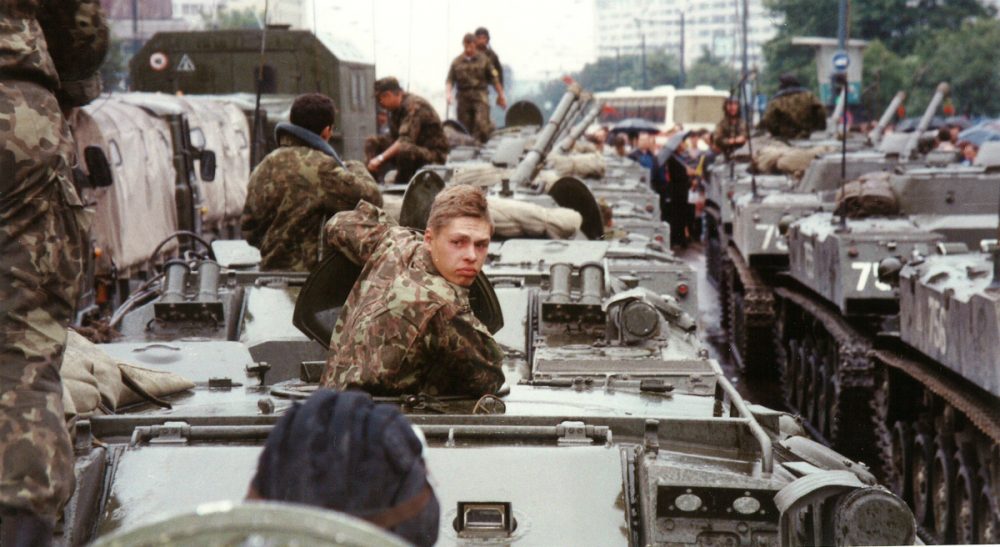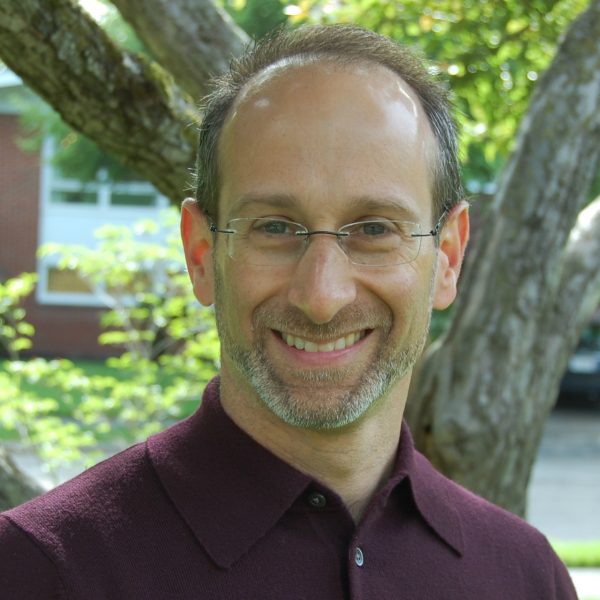Advertisement
The View From Red Square: Witnessing The End Of The Soviet Union

Twenty-three years ago today, Soviet hard-line Communists attempted to overthrow reformer Mikhail Gorbachev. It was an overcast day. I could have remained on the outskirts of Moscow, safe from the tanks and troop movements, but I decided instead to hail a cab and witness what would turn out to be the beginning of the end of the Soviet Union.
Downtown, walking past hordes of people protesting vigorously for or against Gorbachev or the Communists, it felt as if nobody was in control. Here, elderly men and women shouted Communist slogans; there, a young man with a bullhorn urged quiet onlookers to fight for their freedom. Young soldiers stood around smoking cigarettes and cleaning their rifles. They appeared lost and waiting for orders, as though they did not completely understanding what they were doing in Moscow’s Red Square, in the shadow of the Kremlin. They interacted with the crowds, promising — hoping, perhaps — that they would not harm them. Their guns and armored vehicles belied their words.
Today, I can’t help but think of the attempted coup of 1991 when I read about the standoff in Ukraine and Russia’s ongoing identity crisis. What happened 23 years ago resonates still.
At one point, finding myself next to a tank, I climbed atop to photograph the scene below. A few soldiers noticed me but didn’t react. I didn’t realize what I was watching, but it occurred to me later that I had been lucky to climb back down without incident. Tensions ran high.
I remained in Russia for another two years, teaching English and pursuing real estate development. It was a challenging time to live there. Corruption and bribery were rampant, the mafia had a tight grip on business, and hyper-inflation made the basics of life unaffordable for most. In a bread line one day, surrounded by elderly babushkas, I listened to their bitter complaints about the high prices, the lack of food and the country’s new reliance on food imports from the West. Even to those on the street, the fall from superpower to a dependent nation was tough to accept.
I often found myself sitting around a kitchen table at Russian friends’ houses — these are the times I remember most vividly. We drank vodka with a pickle chaser, argued about the direction of the new Russia, and debated the likelihood, or not, that the most recent waves of crime and corruption would eventually yield to a legal economy and economic stability. The optimist from a capitalist country, I always argued this would be the case. At the time, it seemed that Yeltsin was making progress and that the international community was committed to seeing Russia become a partner in the world of nations.
I want to believe that the spirit that galvanized Russians to support Yeltsin, that fervor for progress and freedom, is still there, because it represents Russia’s best path forward.
The end of the Yeltsin presidency in late 1999 cleared the way for the rise of Vladimir Putin. His statement in 2003 that “the collapse of the Soviet Union was the greatest tragedy of the 20th Century” revealed much about who he was and how he felt about the path Russia should pursue. The loss of Soviet satellite states, the economic malaise that plagued Russia in the 1990’s and the loss of Soviet prestige were bad for the national self-image. Putin’s actions since suggest that he took them personally.
Today, I can’t help but think of the attempted coup of 1991 when I read about the standoff in Ukraine and Russia’s ongoing identity crisis. What happened 23 years ago resonates still. I worry for Russia now as much as I did then, but I still place my faith in the people. I want to believe that the spirit that galvanized Russians to support Yeltsin, that fervor for progress and freedom, is still there, because it represents Russia’s best path forward.
Let’s hope the people are allowed to write the next chapter.
Related:
